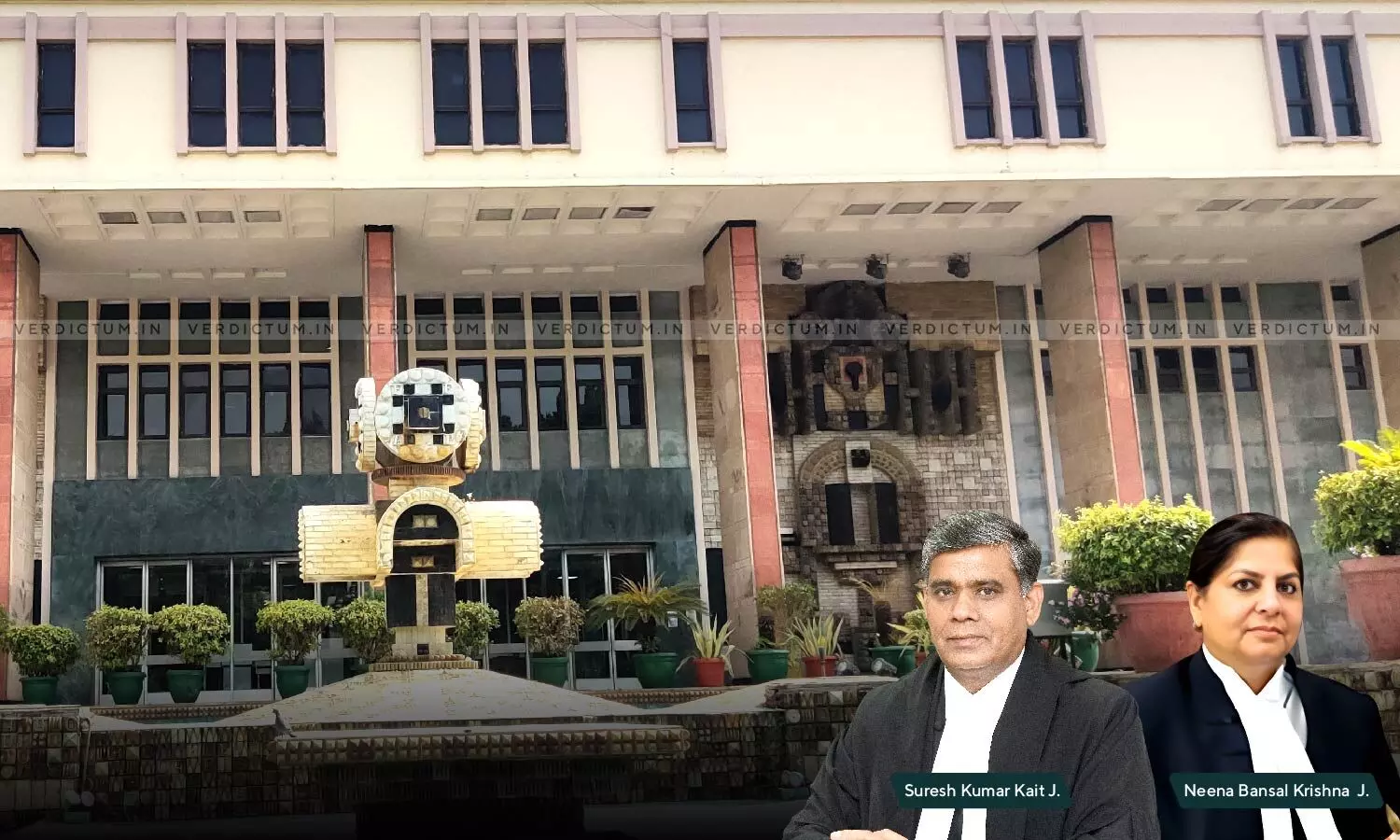
Bullets Of Unjustified Accusations And Complaints Cause Fatal Wounds Making It Impossible For Spouses To Live Together: Delhi HC
 |
|The Delhi High Court while granting divorce to a man said that the bullets of unjustified accusations and complaints cause fatal wounds making it impossible for the spouses to live together.
The Court was deciding an appeal filed by a man against the judgment and decree vide which the divorce petition under Section 13(i)(ia) of the Hindu Marriage Act, 1955 (HMA) was dismissed.
A Division Bench of Justice Suresh Kumar Kait and Justice Neena Bansal Krishna observed, “Vindictiveness, vexation and intolerance are the foes of coherent comprehension. Though the aggrieved person is entitled and well within their rights to avail the remedy under laws, but, crossing the point of “no return” becomes inevitable once the spouses get engulfed in this rabbit hole of criminal litigations. The bullets of unjustified accusations and complaints cause such fatal wounds, leading to unendurable mental and physical acrimony, making it impossible for the spouses to live together.”
Advocate Vikas Nagpal represented the appellant/husband while Advocate Mishika Singh represented the respondent/wife.
Facts of the Case -
The appellant husband, Major in the Indian Army met the respondent wife holding the same position in 2006 and eventually after their long courtship they got married. No child was born from their wedlock and the differences started emerging after their engagement itself. The husband asserted that the wife used to frequently abuse him physically and financially. The husband approached his Commander and his wife to help resolve the disputes inter se the parties but it was of no vail. Hence, he approached the High Court.
The High Court in view of the facts and circumstances of the case said, “There is overwhelming evidence to establish that disgruntled by a failed marriage for lack of adjustment between the parties and their respective families, the respondent resorted to all acts of making false allegations and complaints only to bring the appellant to his knees and to ruin his career.”
The Court further said that the explanation of the wife that the complaints were made in order to protect the marital ties, cannot by any standard considered a reasonable explanation to justify her persistent efforts to undermine the dignity of the husband and in such circumstances, the wronged party cannot be expected to continue the matrimonial relationship as there is enough justification for separation.
“It emerges that the above chain of allegations post filing of the petition, by either spouse is nothing more than a domino effect which was a direct result of the strained relations between the two. The respondent should have led evidence to prove the allegations of the appellant being involved with other girls and should have made efforts to verify the details of the phone number with her husband, before making a complaint to the Army Authorities and alleging that the obscene calls by Sr. Deepak Pandey were made at his instance”, it noted.
The Court added that even the husband should have not merely relied on hearsay before making allegations of second marriage; however, the relationship inter-se the spouses became so fragile, delicate and full of apprehensions that they were quick to jump to conclusions.
“We thus, conclude that the evidence on record proved that there is no chance of reconciliation between the parties and such long separation peppered with false allegations, Police reports and criminal complaints can only be termed as mental cruelty. This dead relationship has become infested with acrimony, irreconcilable differences and protracted litigations; any insistence to continue this relationship would only be perpetuating further cruelty upon both the parties”, it remarked.
The Court concluded that there was overwhelming evidence on record to prove the cruelty by the respondent towards the appellant.
Accordingly, the High Court allowed the appeal and set aside the impugned judgment.
Cause Title- ABC v. XYZ (Neutral Citation: 2024:DHC:1916-DB)